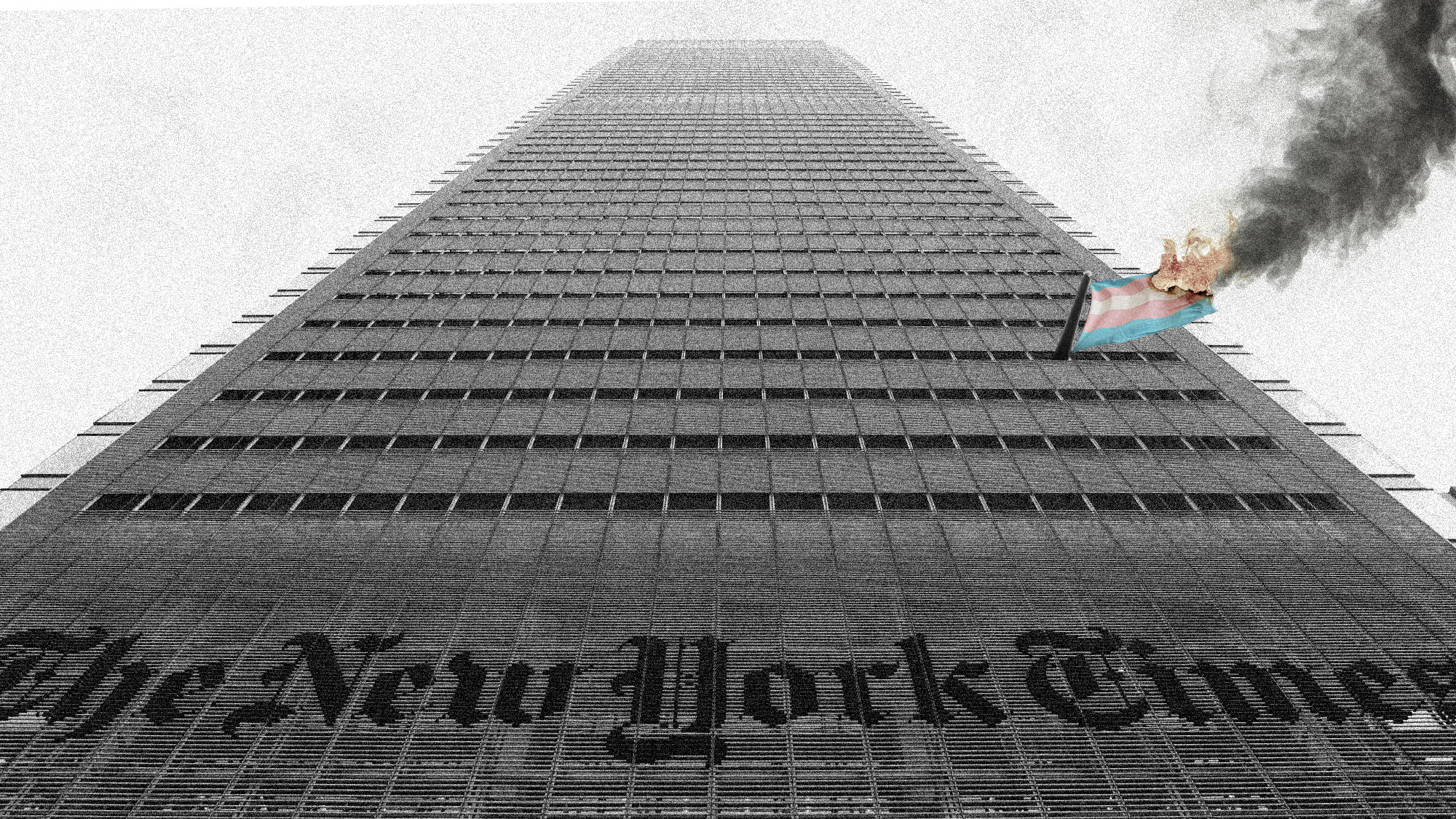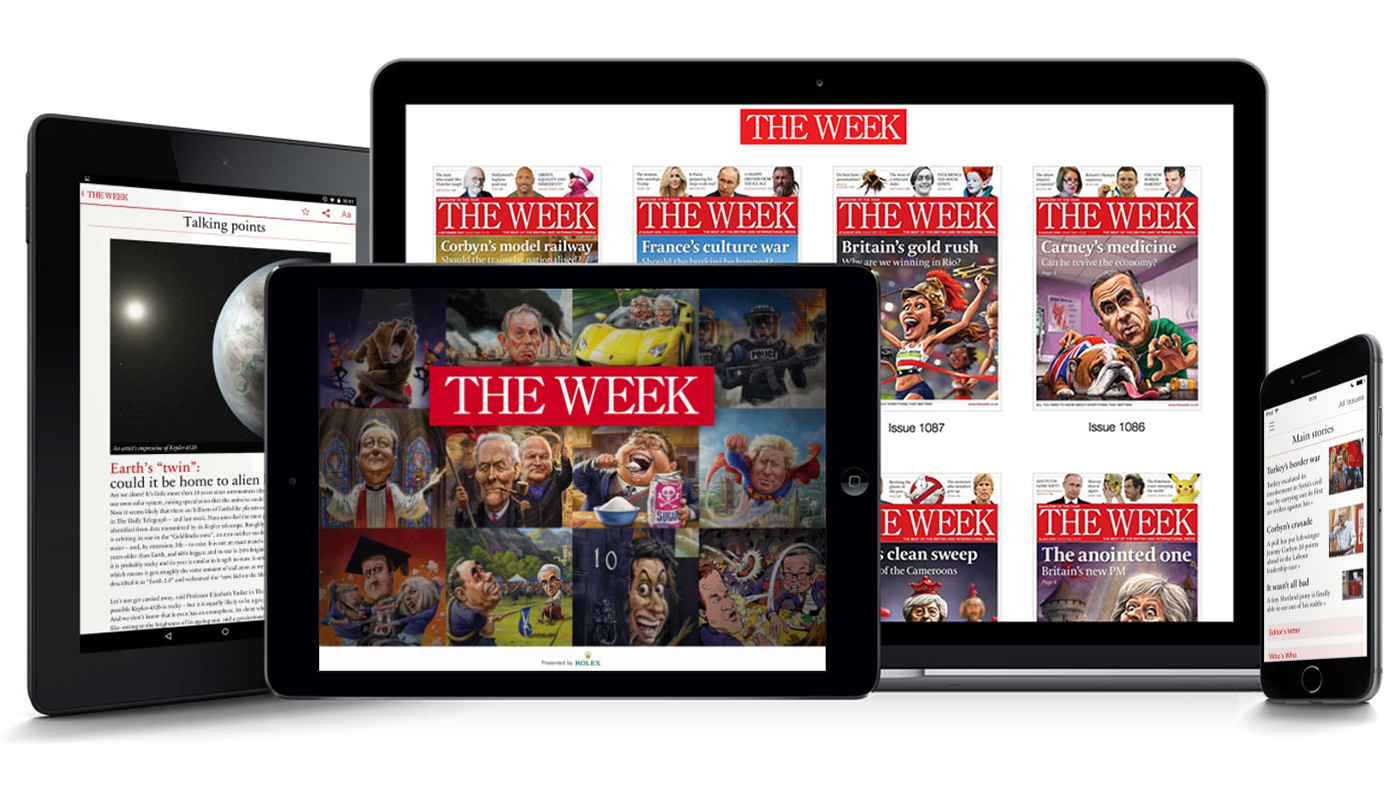Ronan Farrow: is Harvey Weinstein’s arch-enemy ‘too good to be true’?
Pulitzer-winning #MeToo journalist rejects New York Times columnist’s allegations of ‘shakiness’ in his work

A free daily email with the biggest news stories of the day – and the best features from TheWeek.com
You are now subscribed
Your newsletter sign-up was successful
US journalist Ronan Farrow has racked up a string of awards and a huge following with his exposes about powerful men who abuse their position to harass and assault women.
But The New York Times media columnist Ben Smith has taken a deeper look at some of The New Yorker reporter’s work and, as The Guardian puts it, “found him wanting”.
In an article headlined “Is Ronan Farrow Too Good To Be True?”, Smith suggests that his subject - the son of Mia Farrow and Woody Allen - “delivers narratives that are irresistibly cinematic” and at times conspiratorial, but “omits the complicating facts and inconvenient details that may make them less dramatic”.
The Week
Escape your echo chamber. Get the facts behind the news, plus analysis from multiple perspectives.

Sign up for The Week's Free Newsletters
From our morning news briefing to a weekly Good News Newsletter, get the best of The Week delivered directly to your inbox.
From our morning news briefing to a weekly Good News Newsletter, get the best of The Week delivered directly to your inbox.
Farrow “does not make things up”, but “his reporting can be misleading”, Smith claims.
The Times notes that Smith’s attack on Farrow “focused on a handful of possible errors”. Delivering his verdict on Farrow’s 2017 story exposing the now-infamous abuses by Hollywood producer Harvey Weinstein - for which Farrow was awarded a Pulitzer Prize - Smith says that the reporter smoothed over possible contradictions in witness testimonies to make “a narrative virtue of a reporting liability”.
The allegations have been dismissed by Michael Luo, editor of NewYorker.com. In a series of tweets, Luo said that the magazine, which is famous for its rigorous fact-checking, would make a correction if anything in Farrow’s reporting was proven to be untrue, but added: “Ben has not done that here.”
Meanwhile, Farrow tweeted that he “stand[s] by my reporting”, while also taking issue with a number of Smith’s points.
A free daily email with the biggest news stories of the day – and the best features from TheWeek.com
The wider reaction to the claims has been mixed, with The Week US national correspondent Ryan Cooper tweeting that Smith was “nitpicking”.
However, other commentators agreed with Smith’s analysis of Farrow’s work, with The Washington Post’s media critic Erik Wemple describing the article as “muscular debunking work”.
–––––––––––––––––––––––––––––––For a round-up of the most important stories from around the world - and a concise, refreshing and balanced take on the week’s news agenda - try The Week magazine. Start your trial subscription today –––––––––––––––––––––––––––––––
-
 The ‘ravenous’ demand for Cornish minerals
The ‘ravenous’ demand for Cornish mineralsUnder the Radar Growing need for critical minerals to power tech has intensified ‘appetite’ for lithium, which could be a ‘huge boon’ for local economy
-
 Why are election experts taking Trump’s midterm threats seriously?
Why are election experts taking Trump’s midterm threats seriously?IN THE SPOTLIGHT As the president muses about polling place deployments and a centralized electoral system aimed at one-party control, lawmakers are taking this administration at its word
-
 ‘Restaurateurs have become millionaires’
‘Restaurateurs have become millionaires’Instant Opinion Opinion, comment and editorials of the day
-
 OpenAI, Condé Nast and the future of the media
OpenAI, Condé Nast and the future of the mediaIn the Spotlight Eye-catching deal for use of content to train chatbots, but other publishers are worried they're signing away their souls
-
 One NYT Opinion writer vs. gender-affirming youth care
One NYT Opinion writer vs. gender-affirming youth careIn the Spotlight A complex, important issue turned into a media battlefield
-
 Free app access for The Week’s subscribers during Royal Mail strikes
Free app access for The Week’s subscribers during Royal Mail strikesSpeed Read If you have a subscription to The Week magazine you can read the digital edition on your tablet or phone
-
 Comic Relief to end ‘white saviour’ celebrity trips to Africa
Comic Relief to end ‘white saviour’ celebrity trips to AfricaSpeed Read Charity’s appeal videos described by critics as ‘poverty porn’ and ‘devoid of dignity’
-
 Prince Harry and Meghan Markle to star in ‘fly-on-the-wall’ Netflix reality show
Prince Harry and Meghan Markle to star in ‘fly-on-the-wall’ Netflix reality showSpeed Read Former minister accuses couple of ‘exploiting’ royal links with big-bucks deal
-
 Royal officials to ‘scrutinise’ Prince Harry and Meghan Markle’s $150m Netflix deal
Royal officials to ‘scrutinise’ Prince Harry and Meghan Markle’s $150m Netflix dealSpeed Read Duke and Duchess of Sussex have inked agreement to produce documentaries and films for the streaming service
-
 Prince Harry and Meghan Markle pitch mystery project idea to Hollywood
Prince Harry and Meghan Markle pitch mystery project idea to HollywoodSpeed Read The Sussex royals have been shopping their concept around tinseltown since June
-
 Meghan Markle ‘furious’ over Palace’s failure to defend her ‘against true stories’
Meghan Markle ‘furious’ over Palace’s failure to defend her ‘against true stories’Speed Read Legal documents say she felt unprotected by the royal ‘institution’ - but insiders claim press team were powerless